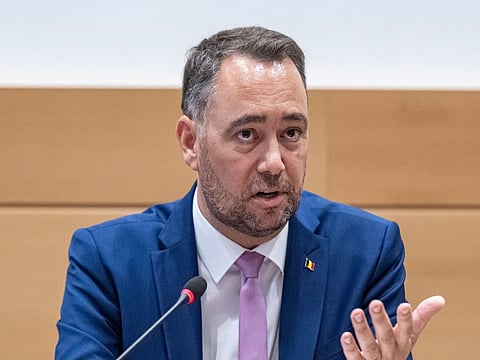Belgium to close embassy in Kuwait as part of global diplomatic restructuring
Closures are intended to make Belgium’s diplomatic network 'broader, more flexible'

Dubai: Belgium will close its embassy in Kuwait as part of a major restructuring of its global diplomatic network, the Belgian foreign minister announced, Al Qabas newspaper reported.
Deputy Prime Minister and Foreign Minister Maxime Prévot said Belgium will shutter eight diplomatic missions between 2026 and 2027, calling the overhaul the country’s first comprehensive review of its global presence in more than a decade.
The closures, he said, are intended to make Belgium’s diplomatic network “broader, more flexible and future-oriented.”
In a statement on X, cited by several international media outlets, Prévot said the restructuring will also include the opening of five new missions and the reinforcement of roughly 20 others. Under the plan, Belgium will close its posts in Sarajevo, Conakry, Bamako, Maputo, Havana, Rio de Janeiro, Guangzhou, and Kuwait.
Prévot stressed that the closures “do not diminish the importance” Belgium places on its bilateral ties with the affected countries.
Diplomatic relations, he said, will continue through regional embassies or special envoys. For Kuwait, that means Belgian consular and diplomatic responsibilities will be transferred to the embassy in Riyadh.
He said the transition would unfold gradually over 2026 and 2027, with support provided to the missions being phased out to ensure continuity for Belgian citizens abroad. The reform, he argued, will allow Belgium to remain “credible and influential” in an increasingly volatile world.
Belgium’s ambassador to Kuwait, Christian Domez, said the decision was “difficult” but part of a strategy approved at the highest levels in Brussels. Speaking to Al Qabas, he said the embassy had not been given a specific date for closure, though the expectation is summer 2026.
Domez acknowledged that Kuwaiti authorities have lodged strong diplomatic objections, pressing Belgium to reconsider and requesting detailed explanations for the move. Kuwait, he said, “is understandably seeking clarification and assurances that the decision aligns with Belgium’s long-term strategic interests.”
On a personal level, he expressed sympathy with Kuwait’s reaction, noting that having a non-resident ambassador “presents a challenge” for maintaining the same depth of cooperation. Still, he emphasised the importance of continued dialogue to mitigate the impact of the closure.
Belgium’s Foreign Ministry said the savings generated by the closures will be reinvested into strengthening understaffed missions and creating a new cadre of “mobile diplomats” who can be deployed rapidly during crises or temporary staffing shortages.
As part of the rebalancing, Belgium will open new embassies in Tirana, Windhoek, Muscat, and Tashkent, and appoint a permanent observer to the African Union in Addis Ababa. A special envoy for Syria will be based in Beirut.
The Foreign Ministry described the changes as an effort to modernize the diplomatic network in line with “current geopolitical, economic and consular realities.” The world, it said, “has changed rapidly,” requiring a diplomatic service that is strategic, flexible and capable of protecting Belgian interests abroad.
Responding to questions from Al Qabas, a Foreign Ministry official reaffirmed that Belgium “places great importance” on its relationship with Kuwait. Cooperation, the official said, will continue through the embassy in Riyadh and through regular political and economic consultations.
Belgian citizens residing in or visiting Kuwait will receive consular services through Riyadh, either remotely or via periodic missions to Kuwait. As with other EU member states, Belgians may also rely on assistance from fellow European Union embassies in Kuwait under EU consular cooperation rules.
“The goal is not to reduce our international presence,” the Foreign Ministry said, “but to make it more strategic, balanced and effective.”
Sign up for the Daily Briefing
Get the latest news and updates straight to your inbox






